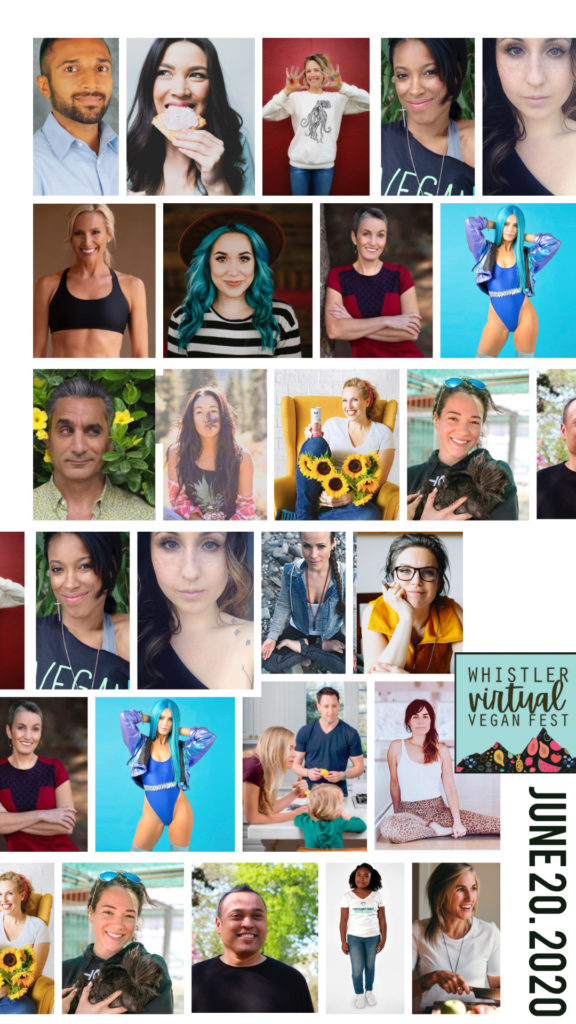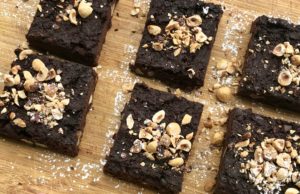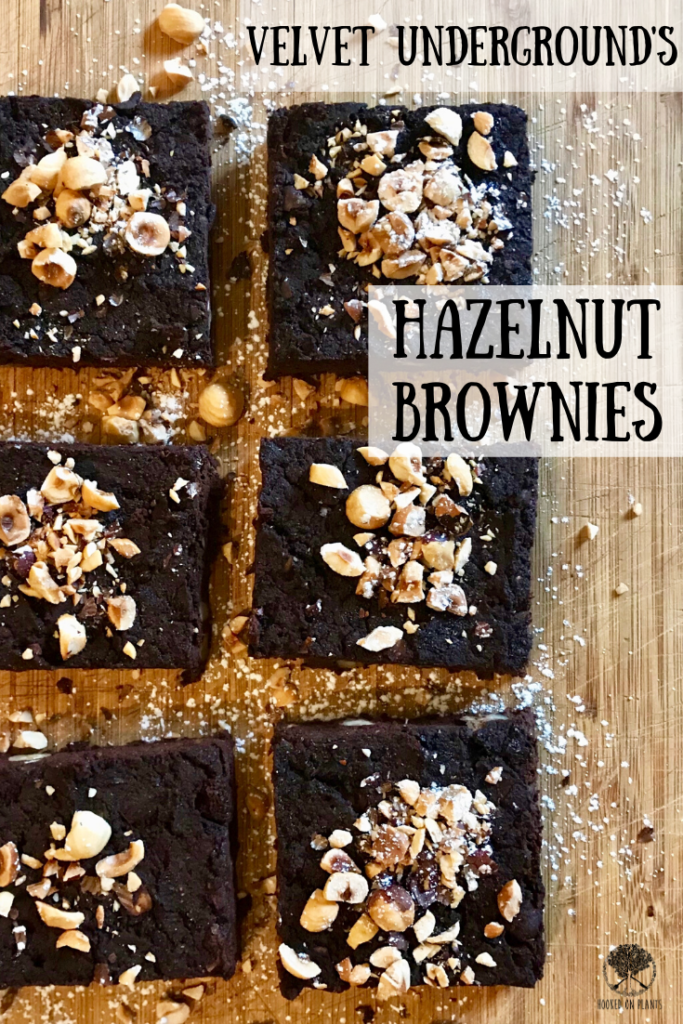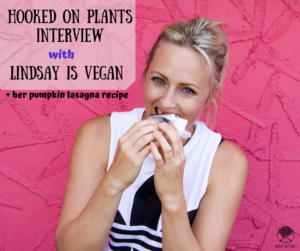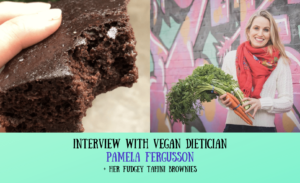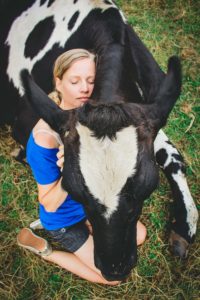|
|||||||
|
|||||||
|
Hooked On People Interviews
Meet Amy + her Velvet Underground Hazelnut Brownies
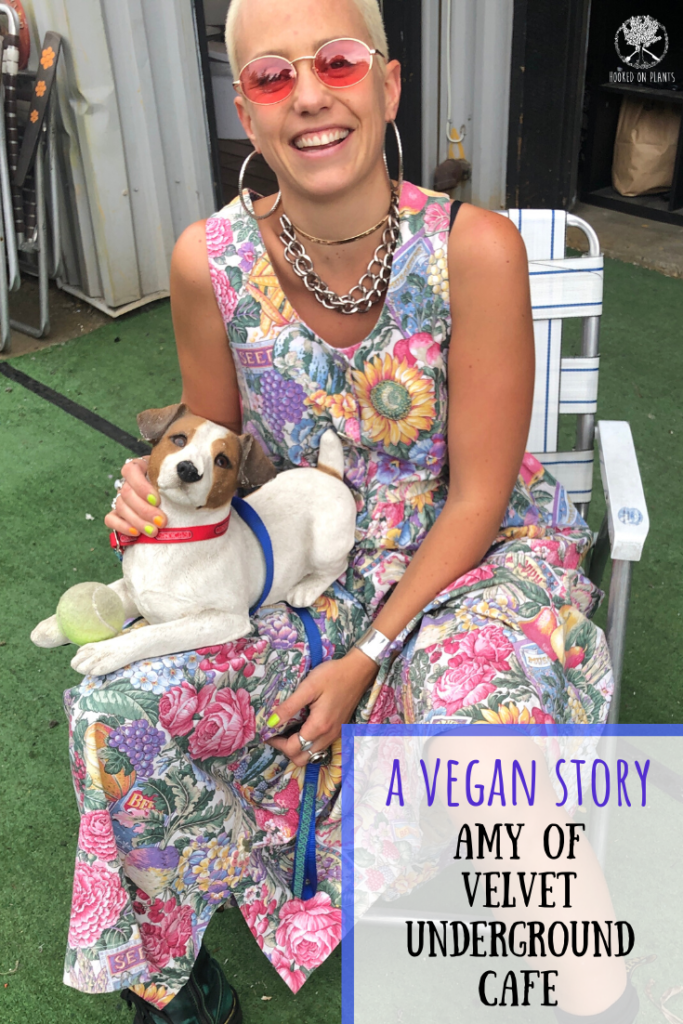
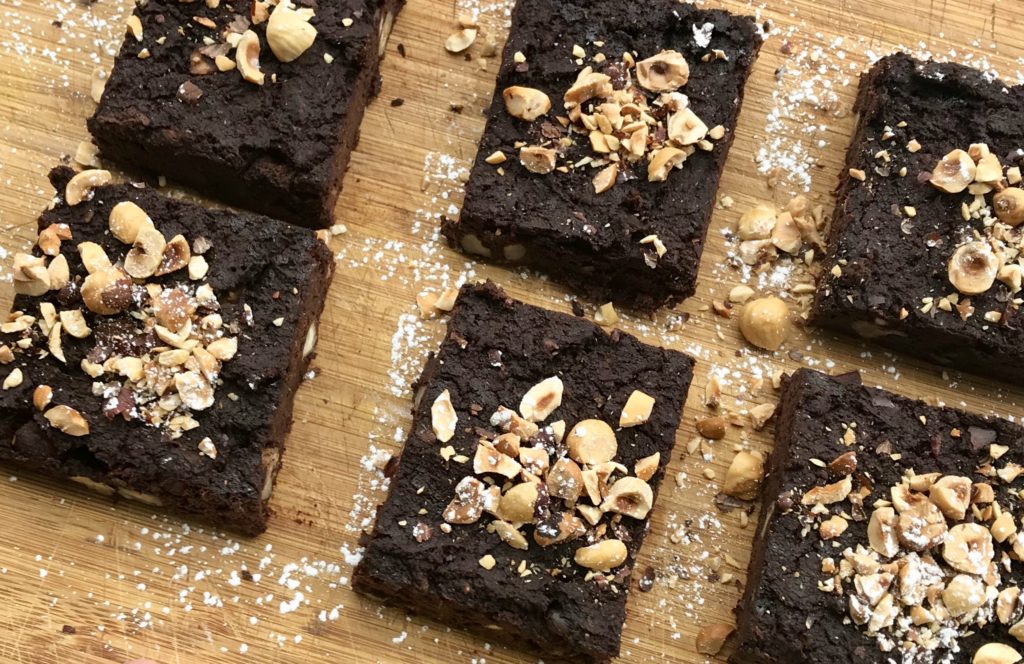
HAZELNUT BROWNIES
Makes 12 brownies
INGREDIENTS
½ cup (8 tsp) chia blended and mixed with just enough water to make a gel
4 cups nut pulp (we use the leftover hazelnut and almond from our nut milk but you can sub regular almond meal for a similar result)
1 cup (100g) dutch cocoa
1 tsp sea salt
½ tsp baking soda
1 cup (170g) dark chocolate (we use east van roasters couverture dark chocolate)
½ cup of coconut milk
1/2 cup (125g) of coconut oil, melted
2 cups date puree: make this by soaking dried dates in warm water for half an hour or more, then blend
2 tsp vanilla extract
1 cup (170g) chopped hazelnuts
DIRECTIONS
1. Melt the coconut oil and chocolate together separately in a metal bowl over a pot of simmering water
2. Assemble all other ingredients together in a large bowl, then mix in the melted chocolate and coconut oil together
4. Transfer to a 10 x 8 (ish) baking dish tin (lined with baking paper)
5. Bake at 350 F for 50 minutes
6. Let cool and put in the fridge for 30 minutes or overnight so it can easily be cut. Then enjoy!
Lindsay is Vegan | Hooked on Plants Interview + Lasagna Recipe!
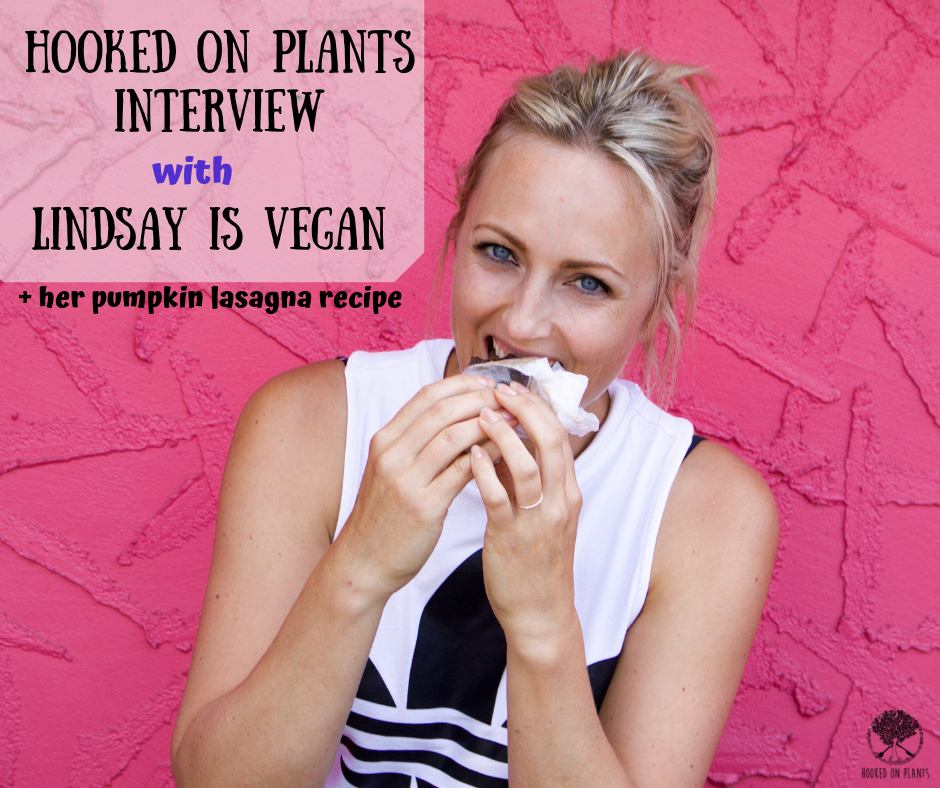
Lindsay O’Donnell has been meat-free for almost 20 years and has been promoting a cruelty-free lifestyle for just as long through volunteering with organizations like Peta, Earth Save, and Sea Shepherd. She ran a cooking blog, hosted vegan supper clubs, and now keeps people informed on food issues through her Instagram page Lindsay is Vegan!
Today she runs the food marketing company Piquant Marketing and works to raise awareness on food issues and promote veganism. Let’s hear more from her!
How long have you been vegan, and what was the pivotal moment for making the change?
This might sound weird, but there are a few things in my life that I just always knew. Like I always knew I’d be a vegetarian and a vegan. I remember my mom having a friend who was vegetarian and I remember her skin just GLOWED. I remember just knowing that I would eventually be a vegetarian too. It’s funny because my kid isn’t vegan but she says the same thing to me- that she will be when she grows up.
But the catalyst to really make changes was when I really became an activist in my teens. I volunteered with Peta, Greenpeace, Sea Shepherd, The SPCA, EarthSave and eventually co-founded an ocean education non-profit too. I felt like I was asking a big change of the world and I couldn’t expect it without walking the walk myself.
How long did it take for you to transition?
A long time! I get people that messaging me all the time and they’re apologizing because they’re cutting out meat but haven’t cut out cheese or whatever. I cut out red meat at 16, chicken a year later and seafood later. I went vegan at 26, making the transition 10 whole years!
The key is finding replacements instead of cutting stuff out (think abundance and fun, instead of restriction). When I first went vegan I just drank coke and ate bananas so obviously I failed (and was an idiot). If you’re making changes, celebrate that and now that we’re all on a food journey …and if you’re doing the first step of trying to be better with your food choices you are already making a difference.
If there was just one thing you wish everyone in the entire world know regarding veganism, what would it be?
God, it’s so hard to talk about being vegan without sounding smug. For example, I can’t really think of a good reason to still eat meat (unless you’re in a remote village and it’s your primary food source).
Ok, here’s the thing. Being vegan makes me feel AMAZING. My body bounces back faster than when I ate meat, I feel lighter, and I’m happier. Being vegan has given me so much joy. I wish people know how wonderful and beautiful it is. People think it’s about restrictions and deprivation but for me it’s been the best thing I could have ever done for my mental and physical health. I really think that if you haven’t even tried veganism…you don’t know what you’re missing.
You are SO inspiring over on instagram, and give out so many amazing facts. What are your favourite resources for finding vegan news/animal rights news/mind blowing research?
I really appreciate that! It’s funny, when I first when vegetarian it felt like it was a much more confrontational time. It’s hard to explain but people challenged you constantly on your food choices. Like I needed to have my reasons and facts for everything. Going vegetarian, and then vegan in the 90’s was like going to debate class.
So, I just signed up for every newsletter I could think of. That way I was constantly getting nuggets of information without being overwhelmed. I still get about 50 newsletters a day…which is now overwhelming! Now there’s documentaries and social media but I still mostly read books and get newsletters. My favourite newsletters are from Peta, Greenpeace, Rainforest Action Network, and Daily Kos.
Some websites that really helped me in the beginning were GEFreeBC, PETA, Farm Sanctuary, WWF, Greenpeace, Sea Shepherd, EarthSave, and One Green Planet.
These are older books but still so worth reading are The Jungle, Fast Food Nation, Greenpeace (love this one for business too!), and I’m currently reading Farmaggeden.
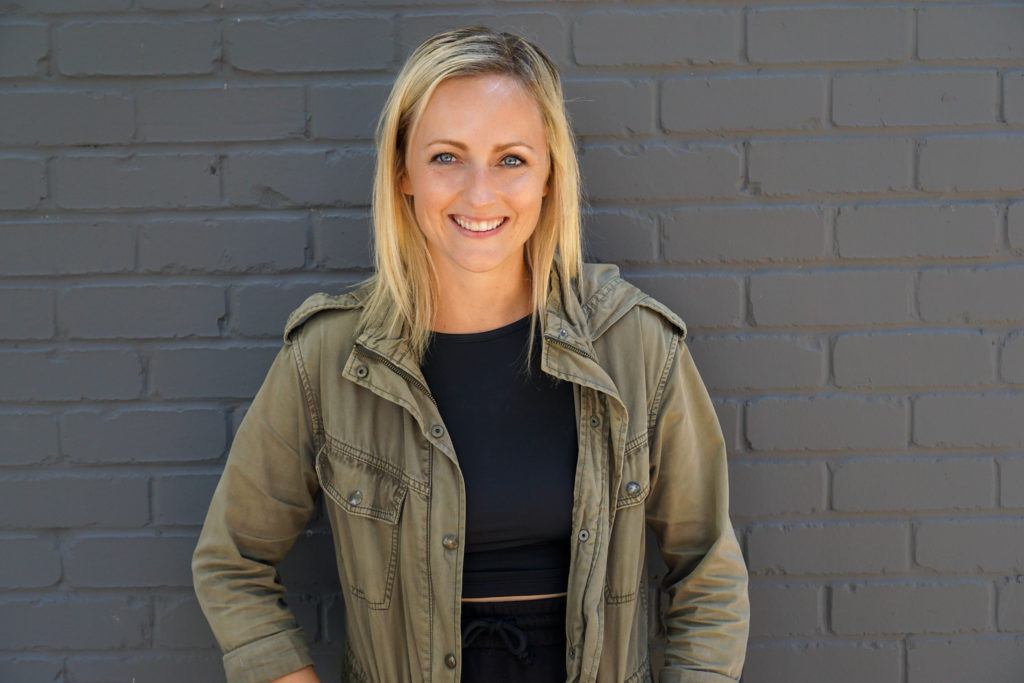
What are your best tips for dealing with social settings for new vegans?
1: I constantly feel like I’m not making any difference in the world and feel sort of burnt out by it. Things take time. I once worked with a woman who said she would never give up meat or cheese and loved meat too much. Many years later she emailed me to say she went vegan, is now a big activist online, and said she always remembered some of the things I talked about with her! Seeds take a while to grow but know that by living by example you’re creating change.
2: Sometimes people are just trying to get a rise out of you. It’s about them, not you.
3: You convert more people by making them feel encouraged or empowered than by making them feel guilty or marginalized.
Where do you see our world in 2050 in regards to the plant-based movement?
This one is so hard because it blows my mind how main-stream veganism is. I sound so old, but I really can’t believe it. I’m reading statistics that says all meat will be plant-based by 2040 which…I don’t know if I believe?
I’m super curious to see what happens when lab meat starts becoming affordable. Many people are vegan for mainly ethical reasons, so if you only eat lab meat…are you still vegan or will that be something new? Like culture-vegans? I don’t know, it will be interesting.
I feel like consumers are generally going to have higher ethical and health standards but I can see the vegan community become fractured over things like lab meat but I also think that’s a wonderful problem to have.
I can see eating meat becoming like smoking…like there are many people that do it but it’s not seen as healthy or productive and it’s taxed heavily.
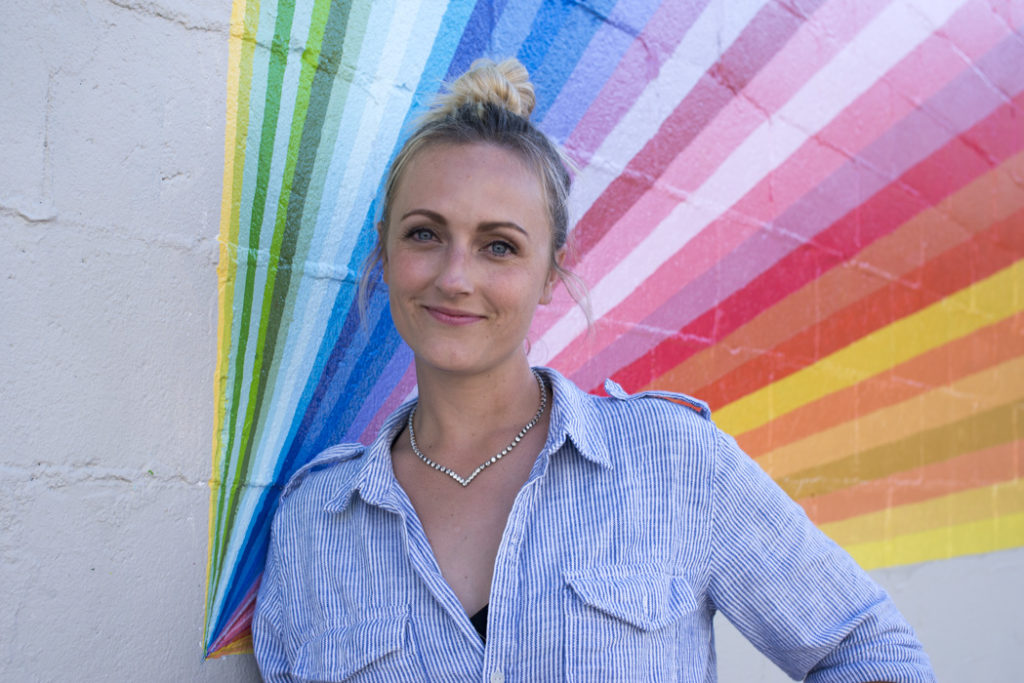
What was your main inspiration behind starting Piquant Marketing?
I feel like I kind of fell into the food business! I had actually always wanted to work at Lululemon and interviewed there a few times but…was never successful. I then saw a posting for a marketing job at Whole Foods Market and it clicked. It was like…this is where I need to be. These are my people! People who were passionate about farmers, food, the environment, and animal welfare.
I worked there for 4 years before being a part of a big layoff of their marketing division. I sort of bounced around and realized I needed to stay in food. It’s where I had made relationships and was spending all my spare time.
I basically wanted to do what I did at Whole Foods Market! So we started doing branding, social media, event planning, community partnerships, content marketing, and business planning for food brands. Then, last year I decided it was time to use the tools I had to make a difference and make a statement so we created core values for the clients we work with which included no meat products. Overall we have almost completely vegan clients mostly because that’s who is attracted to work with us.
Now we’re about to turn 3 years old and it’s totally wild.
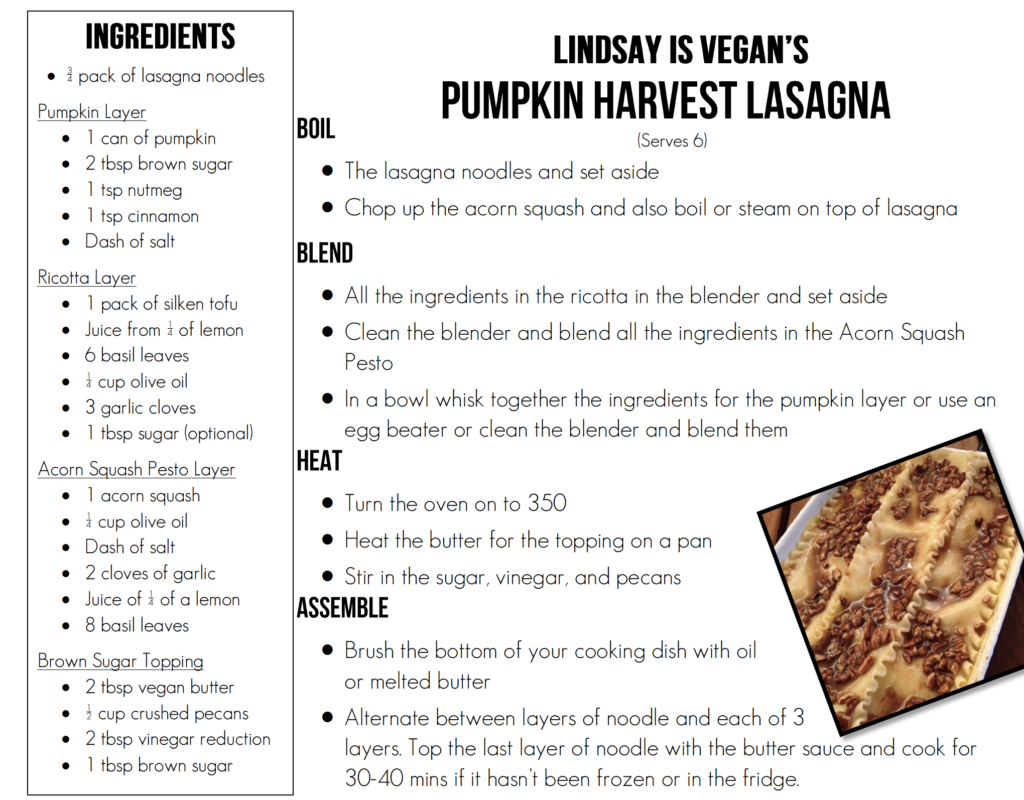
Interview with Vegan Registered Dietician: Pamela Fergusson + Tahini Brownies

Enough talk, it’s time for Pamela’s brownies
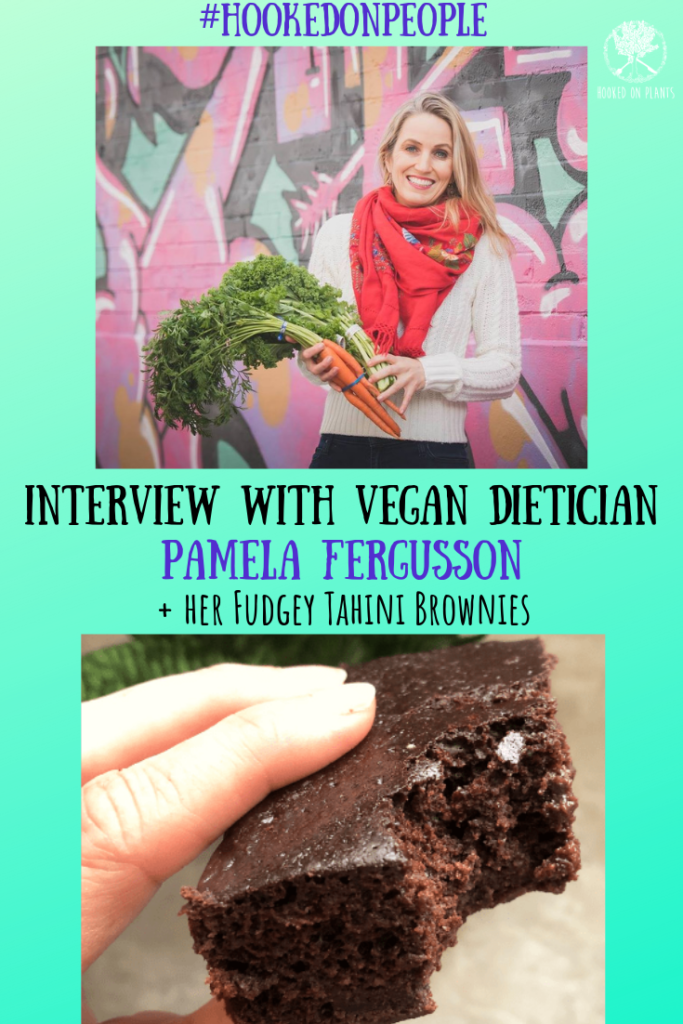
- 1 cup white sugar (can sub ½ coconut sugar. Batter will be extra dense and a bit fudge-y)
- ½ cup brown or coconut sugar
- 1¾ cup flour can use 50/50 white/whole wheat
- 1 cup unsweetened cocoa powder
- ½ tsp baking soda
- 2 flax eggs (1 tbsp ground flax and 3 tbsp water or aquafaba per 'egg')
- ¼ cup apple sauce
- ½ cup tahini
- ¾ cup plant based milk
- 1 tbsp lemon juice or vinegar
- 2 tsp vanila
- 1 cup boiling hot coffee
- Preheat oven to 350F
- Mix flax eggs and set aside to gel while you prepare the other ingredients
- Add lemon juice or vinegar to your plant-based milk. Set aside for 10 mins to sour. This will improve the flavour of the brownies (like vegan buttermilk!)
- Mix your dry ingredients in a bowl so they are evenly distributed.
- Add the wet ingredients to the dry (don't forget the flax eggs), EXCEPT for the coffee, save that til last. Hand mix gently with a spoon until well combined, but don't over-mix.
- Pour in the coffee and mix gently. Batter will be wet. Don't worry!
- Grease a 9X13 in baking pan or line it with baking paper.
- Pour batter into prepared pan and bake at 350F for 30 mins, until a cake tester comes out clean. Cool in the pan for 10 minutes and then turn onto a wire rack to complete cooling.
- Enjoy warm! With vegan ice cream. Life is delicious.
Tag @hookedonplants and @drpamela_rd if you make this! We love seeing your creations.
For more inspiration and info on eating plant-based, sign up to my emails for bi-weekly inspiration, recipes, plus a free PDF on How to Get Hooked On Plants!
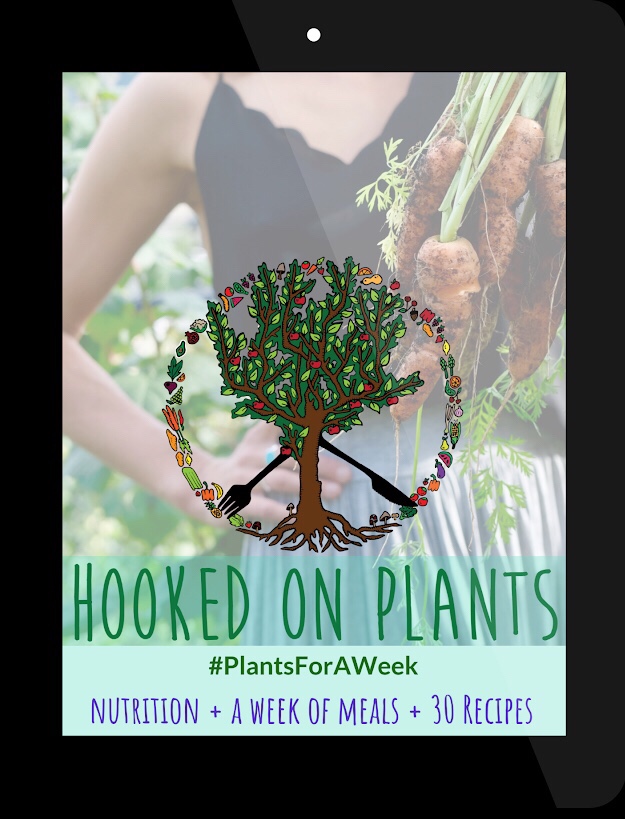
Hooked on People: Anna Pippus aka Easy Animal Free + her Lentil Walnut Bolognese
Anna’s instagram stories ( @easyanimalfree ) make the vegan lifestyle as a busy Mom of 2 look like a breeze (by making recipes like her lentil walnut bolognese, shared below!). The way she shares recipes, ideas and tips makes her super approachable, and totally normalizes the plant-based lifestyle.
In a nutshell, Anna is an animal rights activist, and lawyer. Her life’s mission is to minimize animal’s suffering as much as she possibly can… and she’s doing this by specializing in farm animals by serving as director of farmed animal advocacy for Animal Justice, and as a strategic advisor for We Animals.
She is an incredible voice for the voiceless, and does a fantastic job bringing it all back to the mainstream by showing how simple it can be to create easy, breezy, delicious meals for her family.
Let’s get to know Anna a bit more…
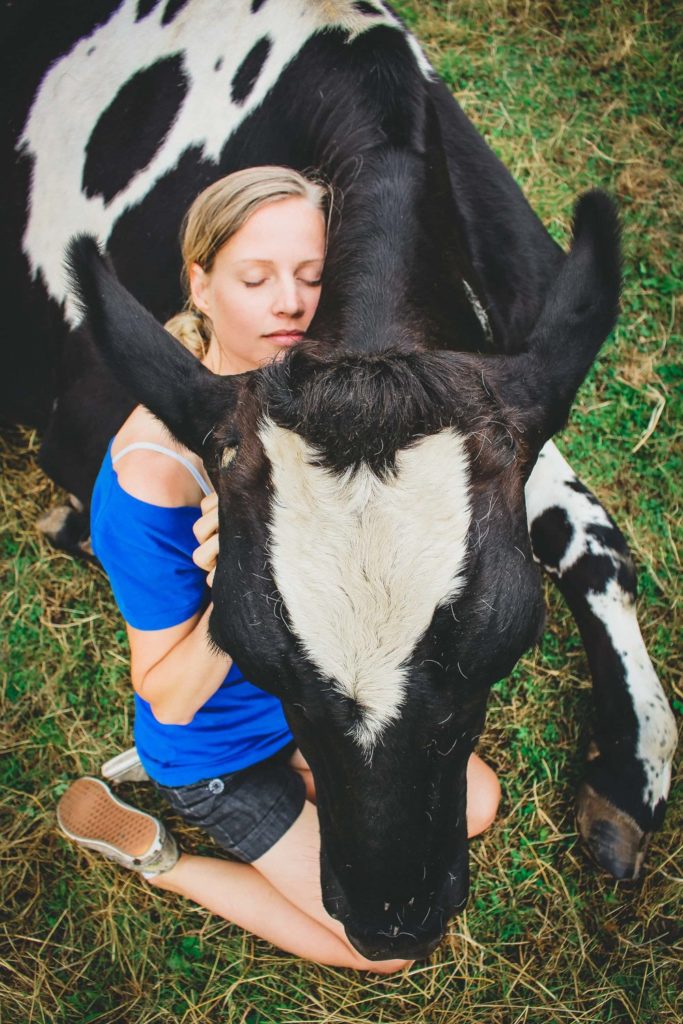
Hooked on Plants: Was there a moment in your life that made you go vegan?
Anna Pippus: I went vegetarian as a kid, simply because I was a big animal lover and it didn’t feel right to eat animals. But, I didn’t know anything about farming back then, and I kept eating eggs and dairy, wearing leather, and buying cosmetics by animal testing brands without too much thought. This was the early 90s—there was no internet, and veganism was rare enough that I’d never heard of it.
A little over ten years ago, I first heard about veganism, and on some level I think it occurred to me that this was probably a good thing to do, something that I should and would do. I half-heartedly poured watery rice milk in my tea and tried to avoid cheese made with cow’s milk (which I loved, and in those days vegan cheeses were inedible). But I avoided learning more about farming. I had such empathy for animals that I couldn’t stand seeing them suffering. I told myself that I was already doing my part, that exposing myself to gory photos and videos wouldn’t help.
Then, in Charlotte Montgomery’s book Blood Relations, I read a story about a bull on a truck being taken to slaughter. The bull had a broken hip and couldn’t stand, let alone walk. But bulls are enormous animals and the only way for them to get off a truck is on their own (on farms, tractors are used to move downed cattle). The workers used an electric prod to shock the bull and force him to drag himself—using only his front legs—to the back of the truck, where he slammed several feet into the ground below. Then, he was forced to drag himself into the slaughterhouse. It took hours. By the time he was inside, the slaughterhouse was closing for the day, and he was left— alone and in pain—on the floor to wait for the next day, when workers would kill him.
It was like I’d been splashed with a bucket of cold water. In that moment, I realized with full clarity something I think I’d been growing to understand all along: that when animals are used as commodities, they will suffer. Animal welfare is most often in tension with profits. Workers are desensitized to the suffering of animals, because they have to be in order to be able to do the job. I realized then that farming animals could never be humane. I immediately became not only vegan, but a dedicated activist. And fortunately, plant-based milks and cheeses have come a long way since then—there are lots of delicious options now!
HOP: You have a very in-depth post here about raising vegan children, but could you give a few simple tips here on vegan lunch prepping for families?
AP: In our family, I do most of the kitchen managing and cooking, because it’s something I really enjoy. But I’m definitely not up for making complicated, time-consuming meals, and I only have it in me to cook once a day, at dinner time. (I love my end-of-day ritual of putting on some music and getting absorbed in the creativity of cooking).
So, at dinner, I tend to cook big meals, that will provide us with leftovers for the next day, or extra parts that can be repurposed into something else (e.g. extra rice to make fried rice another day). That way, when I open the fridge at lunch time, there’s always something to work with.
If there isn’t, we have sandwiches or open-faced toast, along with veggies (like peppers or cucumber), fruit, nuts etc.
I’m a big believer in the gospel of hummus. Everyone should have it in the fridge! It’s delicious, ridiculously nutritious, a good source of iron, calcium, and protein, and widely liked even by the world’s least adventurous eaters. It’s perfect on sandwiches, salads, and bowls, and as a dip with crackers or vegetables.
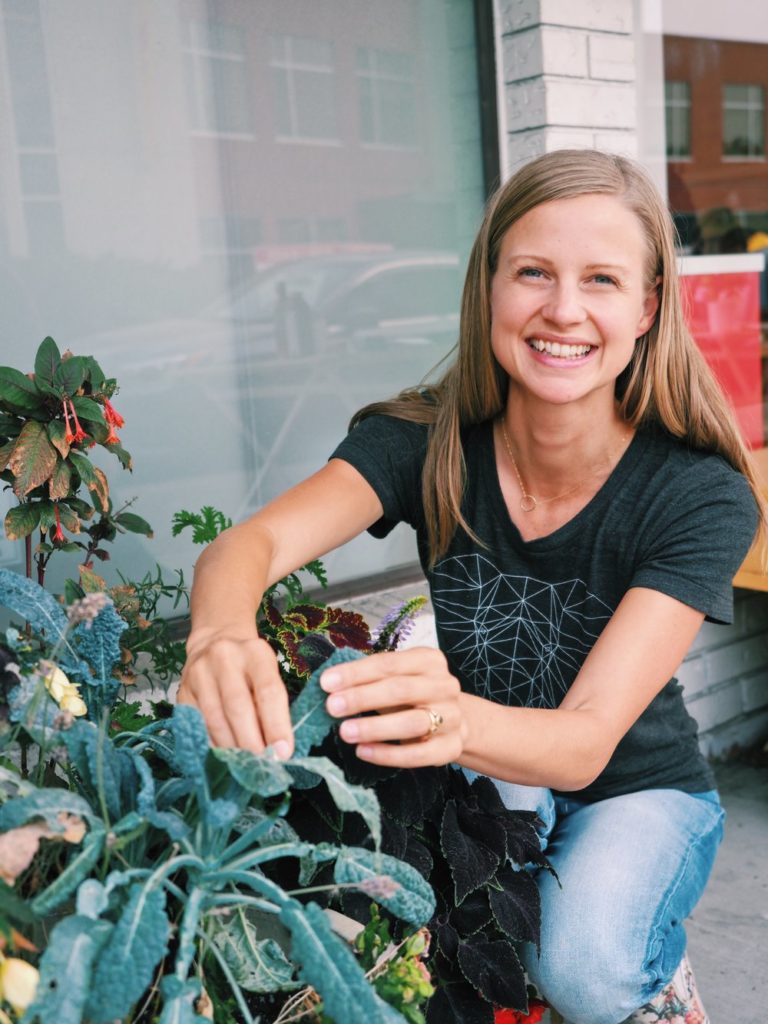
HOP: You use your legal training to do your best to change the farm animal laws (amazing!)… but what are your top tips for people who want to make a difference in the animals lives, but don’t know where to start?
AP: There is so much to be done! Everyone has different skills, lifestyles, and personalities, so I think the first step is to self-reflect and take inventory about how you can best contribute to the movement in a way that will be both impactful for animals and sustainable for you.
Here are a few ways people can get involved to help animals:
- donate to effective initiatives and organizations.
- volunteer with established initiatives and organizations, especially if you have skills in bookkeeping, fundraising, graphic design, video production, or anything else that non-profits are chronically in need of.
- organize or attend impactful protests, demonstrations, and marches.
- share information and resources that you find impactful or useful on social media.
- write letters to the editor in response to media pieces about animals, plant-based eating, the environment, health… any hook you can find!
- write or meet with politicians at all levels of government (municipal, provincial, federal) to ask what they’re doing about animal issues and make suggestions for policies they can back. If there’s a particular piece of legislation being considered, write to let them know you support it.
- contact restaurants and grocery stores in your neighbourhood to encourage them to add plant-based options. Make suggestions for your favourite products and dishes.
- sign petitions, if they’re to specific decision-makers with specific, winnable requests.
- use chalk to write messages on the sidewalks around your neighbourhood, or put up posters on community message boards.
- host potlucks, meet ups, book clubs or other events to help build community and spread the word.
HOP: What facts might surprise people about grass-fed, free-range and cage free laws?
AP: These terms very often don’t mean what people think they do. Even in best-case scenarios, animals are still genetically manipulated to manifest profitable traits that often compromise their welfare. For example, dairy cows produce up to 10 times more milk these days than they used to, which leads to painful engorgement, physical depletion, and rampant mastitis (a painful infection). Chickens raised for meat are bred to grow very large, very quickly, which can cause cardiovascular problems (their little hearts can’t keep up), and lameness because their bones are too soft and immature to support their relatively massive weight. In all sectors, genetic manipulation has produced a laundry list of grotesque outcomes that directly compromise animals’ quality of life.
As a mother, probably the thing that breaks my heart the most is how on all farms—even the certified humane ones—animals are separated from their families. In the dairy industry, calves are taken from their mothers a few hours after birth, so that the milk can be diverted to humans. The babies are a waste product of the dairy industry. In nature, hens are doting mothers, peeping to their babies through the shell to establish a bond. After hatching, they’d be nearly inseparable, the babies tucked under their mothers’ wings for comfort and safety. But in our agriculture system, chicks are hatched in industrial hatcheries, never knowing their mothers. Chicken meat and egg farms are like giant orphanages with no mature presence to teach or comfort. If you go into a chicken farm and sit down, the babies will come over and fall asleep in your warm lap.
And of course, even in a best case scenario, animals are sent to be killed at a fraction of their natural lifespan. Virtually all animals are babies when we kill them for food: chickens are five to six weeks old, pigs are five to six months, turkeys are three to six months, and beef cattle are 12 to 18 months old. Slaughterhouses are frightening places; the animals can smell blood and they fight for their lives. I would be terrified if I were in their place. All of this for products that are not only unnecessary, they are damaging our health and environment, too.
HOP: Your favourite and simplest dinner recipe!?
AP: I have a LOT of fave dinner recipes, which you probably know if you follow me on Instagram 🙂 Right now, I’m crushing on a hearty lentil-walnut bolognese. Lentils are superfoods that we need to eat more of, and walnuts are a great source of plant-based omega 3 fatty acids.
Another all-time fave pasta dish is pasta with cream sauce. The recipe is here on my site. I’m also a big fan of bowls, which basically follow an endlessly versatile formula: grain, legume, veggies, sauce, nuts/seeds. I have a post on my site all about how to build a bowl, and plenty of bowl ideas on my instagram account.
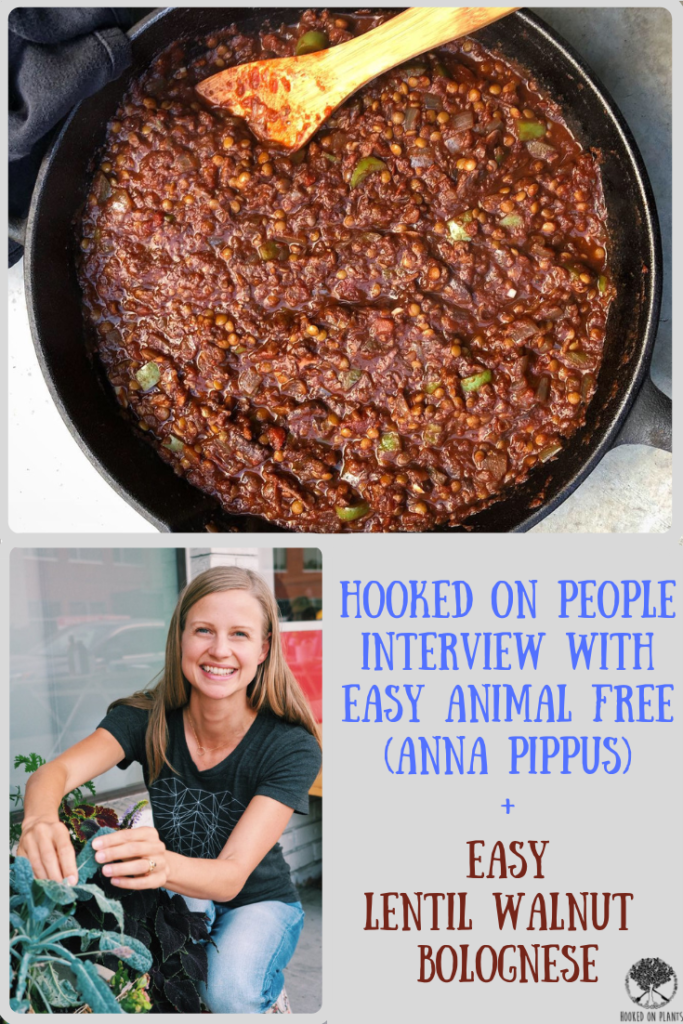
- 1 sweet onion
- 1 green pepper, chopped
- 5-8 mushrooms, sliced
- 3 cloves garlic, minced
- Splash of red wine or balsamic vinegar
- ½ cup walnuts, finely chopped
- 3 cups tomato sauce or your favourite marinara
- ¾ cup brown lentils, pre-cooked
- Oregano, to taste
- Sea salt, to taste
- Pasta noodles of your choice, cooked
- Over medium high heat, sauté an onion until soft (with a splash of water to keep it from sticking).
- Add a chopped green pepper, 8 oz or so sliced mushrooms, and a few cloves of minced garlic. Use a splash or two of red wine or balsamic vinegar to deglaze the pan.
- Add about ½ a cup finely chopped walnuts (a food processor works well but not necessary) and toast for a minute or two.
- Then add about 3 cups tomato sauce or marinara, and some cooked brown lentils (I boil half a cup from dry but canned is fine too)
- Season with oregano and salt, and simmer for a few minutes to combine the flavours.
- Serve with a pound of your favourite pasta.
Tag me and Anna if you make this! (@hookedonplants @easyanimalfree on instagram)
We love seeing your recipes.
… and if you want more:
Sign up to my emails for weekly inspiration, recipes, plus a free PDF on How to Get Hooked On Plants!
Try the #PlantsForAWeek challenge by grabbing my brand new E-Book!




